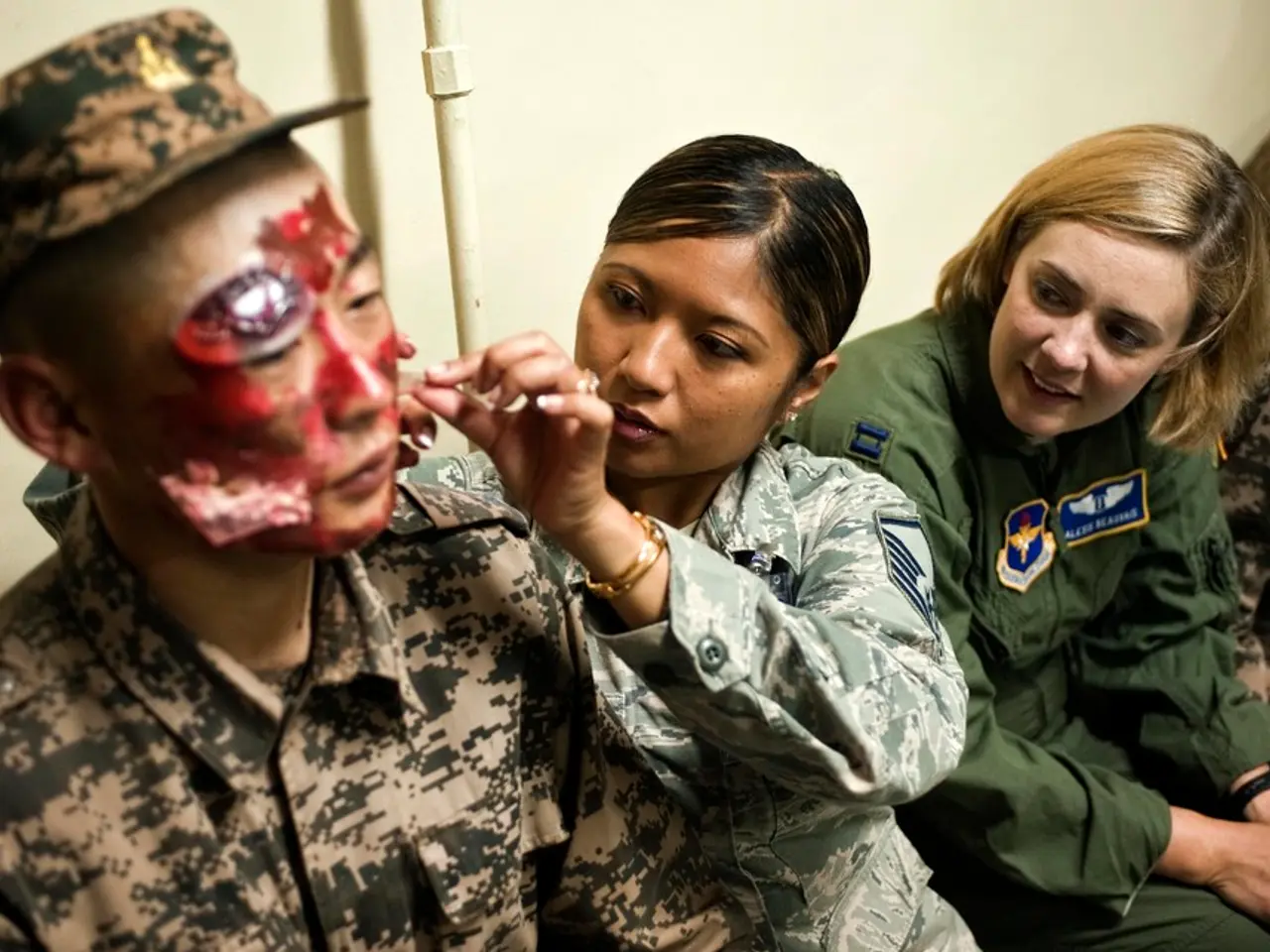Emotional response to the demise of celebrities, despite lack of personal connection
Parasocial relationships, one-sided emotional connections between fans and celebrities, can play a significant role in our lives, especially when a beloved figure passes away. This emotional bond, while unreciprocated, can lead to feelings of grief, a natural response that comes in waves, as we mourn the loss of a perceived social connection.
Parasocial grief, the mourning felt for celebrities or public figures, is a normal response to the death of someone we feel emotionally connected to, even though we may not have had a real-life relationship with them. The sudden disappearance of this perceived social connection can trigger genuine grief responses, much like those experienced with personal losses.
The emotional investment in these parasocial bonds can lead to grief symptoms such as sadness, denial, and feelings of emptiness. This highlights how these non-reciprocal ties can influence our emotional well-being.
Social media has intensified the impact of parasocial grief by creating a sense of intimacy through behind-the-scenes content that previous generations never experienced. This constant access to the lives of our favourite celebrities can make their deaths feel more personal and impactful.
However, it's important to remember that parasocial relationships do not replace real friendships; they supplement them and can be pulled in when needed. They can boost our sense of community and well-being, help us explore our identity, and reduce prejudice and stigma.
The death of a celebrity can take away a source of joy, as they may have created movies or played characters that brought happiness. But it's crucial to reflect on the impact a celebrity had on our lives, remembering the inspiration they provided, even after their death.
Celebrity openness about personal struggles, such as addiction and mental health issues, can be relatable and provide hope for those facing similar challenges. However, the death of a celebrity related to mental health issues can stir up complex feelings, including thoughts of self-doubt or self-harm. If these feelings become overwhelming, it's essential to seek help from friends, family, or therapists.
Collective grief over a celebrity's death can provide comfort, as it allows people to share stories and memories about the impact the celebrity had on their lives. This shared mourning can be an expression of empathy, reflecting the human capacity to care for others.
In conclusion, parasocial grief is a normal response to the death of a celebrity, resulting from one-sided emotional connections that meet real psychological needs. It's important to remember that these feelings are valid and can be managed with support and reflection.
- Science has helped us understand that parasocial relationships, a phenomenon in health-and-wellness, can influence mental-health, showing how these connections can lead to feelings of grief.
- Lifestyle blogs often discuss how these parasocial bonds can impact our emotional health, going beyond just entertainment to touch upon relationship dynamics.
- In the realm of fashion-and-beauty, celebrities serve as style icons, but their death can leave a void, impacting personal-growth as we reflect on the influence they've had on our self-perception.
- Family dynamics can be affected by the death of a beloved celebrity; children may struggle to understand, leading to conversations about emotional well-being and love-and-dating within the context of societal figures.
- Education-and-self-development platforms have started discussions on career-development, encouraging online-education and job-search strategies that extend beyond typical skill-sets, including mindfulness techniques to cope with parasocial grief.
- Lifelong-learning emphasizes goal-setting and continuous skill-training, such as digital literacy, to keep up with the changing dynamics of sports-betting in career-development, utilising online-education to stay informed.
- The sudden disappearance of a sports star can have profound effects, not just on fans, but on the sports industry as a whole, calling for a focus on mental-health within sports-betting and career-development.
- Collective grief over a sports figure's death can foster a sense of community, bringing people together in their shared passion, much like learning new skills in personal-growth can build connections and reduce isolation.
- Parasocial grief can result in a re-evaluation of priorities, leading to a heightened interest in mindfulness practices, lifestyle changes, and education-and-self-development to foster emotional resilience.
- The intertwining of parasocial relationships with real social connections demonstrates the complex ways in which our relationships, be they channelled through entertainment, education, or sports, contribute to our overall well-being and personal growth.




